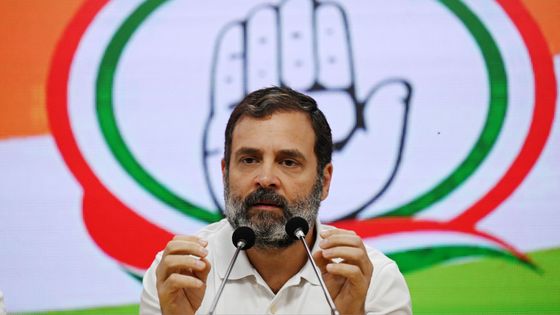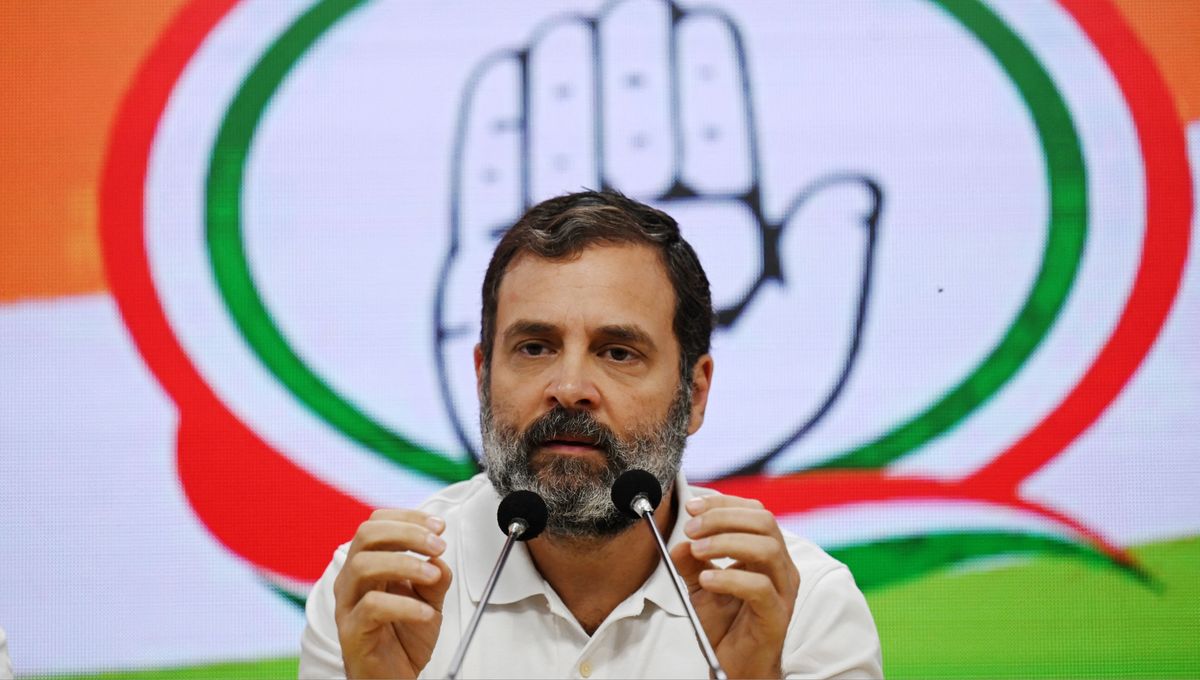
He risked overshadowing Narendra Modi ahead of the national elections scheduled for 2024: Rahul Gandhi, the charismatic leader of the Congress Party has just been stripped of his seat as a deputy in the lower house of Parliament India, as a result of a court ruling last week. Sentenced to two years in prison for defaming Prime Minister Modi for remarks made during the last election campaign, the heir to the Gandhi family could find himself de facto excluded from the race, while he embodies the main hopes of the opposition.
The maneuver is crude, but typical of the methods of the BJP, the Hindu nationalist party in power for ten years. The court that sentenced Rahul Gandhi is in the stronghold of Narandra Modi, the state of Gujarat, a region which the Prime Minister has made the laboratory of his policy and where he still pulls all the strings. Yet this coup may surprise. Modi does not necessarily have so much to fear from his opponent. As he completes his second term, his popularity rating is still high and many are predicting another victory for him in 2024.
In the opposite camp, the opposition seems too divided to catch up. The Congress, this historic party that was once so powerful, no longer has the same ability to rally. This is why Rahul Gandhi has embarked in recent months on a great march across the country, over 3500 km, to meet the Indians. A reference to Gandhi’s famous salt march, the starting point of Indian independence in the 1930s. But even if this march which ended at the end of January caused a lot of talk, nothing says for the moment that the Congress will succeed in federating the opposition in the coming year, a sin equa non condition for hoping to overthrow the power in place.
Unless Narendra Modi finds himself splashed by the financial scandal of the moment, the “Adani scandal” named after one of the richest men on the planet, the Indian businessman Gautam Adani. At the head of one of the main conglomerates in the country, this multi-billionaire who made his fortune in raw materials has found himself at the heart of a huge fraud case for several weeks. He would have built a large-scale fraud scheme, with the blessing of the authorities. However, it is a close friend of Prime Minister Modi. The markets that have been allocated to it raise questions. The fact that he funds the BJP as well. Everything is in place for this scandal to go back to the head of government. The opposition has therefore stepped up to the plate, with Rahul Gandhi in the front line. This could explain why the power seeks to get rid of this too talkative opponent.
Yet observers make the observation: this scandal does not seem to weaken Modi for the moment. This may seem surprising, but Indian public opinion is very little interested in it. The BJP’s stranglehold on the media has something to do with it. The subject has regularly made the headlines in the international press, but much less so in India. The symptom of a country anesthetized by ten years of Hinui nationalist propaganda.
Since coming to power, Narendra Modi’s party has tightened its grip on all sectors of society – the press, justice, the economy. He succeeded in imposing his ideological and ethnic agenda, going so far as to incite religious hatred. A major turning point for this secular and multi-confessional country, often considered the largest democracy in the world but where democracy now seems threatened by the authoritarianism of Modi. Unless this brutal dismissal of an emblematic opponent is the coup de force too many, and that he signs – you never know – the awakening of pro-democracy.

